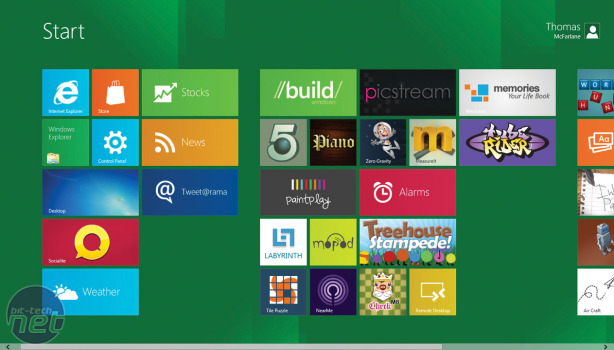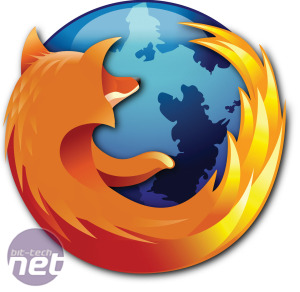The world doesn't end
We won't give this silliness any more space than the required few sentences needed to mock it. Apparently, the Mayan calendar predicts that the world will end in 2012, at the time of the Mayan Long Count, at which point the universe is recreated.You can expect plenty of conspiracy theories, bad TV shows and disastrous predictions around this to pop up in 2012, but we confidently predict that the universe won't particularly care about man-made calendar systems.
Or, in the words of Professor Brian Cox: 'If, at the turn of the 21st century, you still believe that's the case, then you are a twat.'
Microsoft unleashes Windows 8
After the stalled and initially problematic release of Windows Vista in 2007, Microsoft now seems determined to keep its business model regularly ticking over with new and regular releases of Windows, the latest of which is widely predicted to be released in 2012. From what we've seen so far, however, Windows 8 looks like a very different beast to its predecessors.Geared towards touch-screen devices and tablets, the new tile-based Start screen and Metro interface behaves much more like a smartphone OS than the Windows desktop layout we've been using since Windows 95. Of course, a classic Windows desktop is also available, but it won't be there by default - you'll have to deliberately switch to it. As Microsoft's president of the Windows Division, Steven Sinofsky, explained on the Building Windows 8 blog, 'Essentially, you can think of the Windows desktop as just another app.'
It looks as though Microsoft has rebuilt Windows 8 from the ground up this time, rather than simply tweaking the existing code, and this could have far-reaching consequences. Could we finally see Windows-based tablets that are worth buying? Will the new OS add anything new for gamers, such as a new version of DirectX? Whatever happens, it looks as though Windows 8 is going to be an adventure for Microsoft. We'll be watching this with great interest.
Firefox market share plummets
Mozilla's Firefox browser had a good spell at around the time that Internet Explorer 6 was having all its problems. The solution was simple - if you didn't want your PC to be filled with spyware then you installed Firefox. Alternatively, a few other people also installed Opera, or Mac users stuck with Safari. We aren't trying to start a flame war - just stating that Firefox was a very popular alternative when IE6 had its problems.However, now that Windows XP is finally starting to disappear, later and more stable versions of Internet Explorer are now becoming standard, and they have Firefox-like features such as tabbed browsing too. Perhaps more importantly, though, is the rise of Google's Chrome browser.
The W3Counter statistics, for example, which monitors the browser usage across 50,000 sites, show Firefox's share of the browser market falling from 32.3 per cent in January 2012 to 25.5 per cent in November 2011. Meanwhile, Chrome's share has rocketed from 6.3 per cent to 22.8 per cent in the same timeframe. A similar story is also told by other browser-tracking stats, such as Clicky.
Not only that, but the Mozilla Foundation previously received a lot of its funding from Google, and this deal, which reportedly involved having Google as the browser's default search engine, expired in November 2011.
What's more, neither Mozilla nor Google has announced a renewal of the deal, making the future of the Firefox browser look pretty shaky. This isn't to say that Firefox is going to disappear completely. After all, its market share is still officially in front of Chrome's at the moment.
However, usage of the Chrome browser is increasing rapidly and Firefox will have a tough time competing when it doesn't have the necessary funds for development.

MSI MPG Velox 100R Chassis Review
October 14 2021 | 15:04












Want to comment? Please log in.